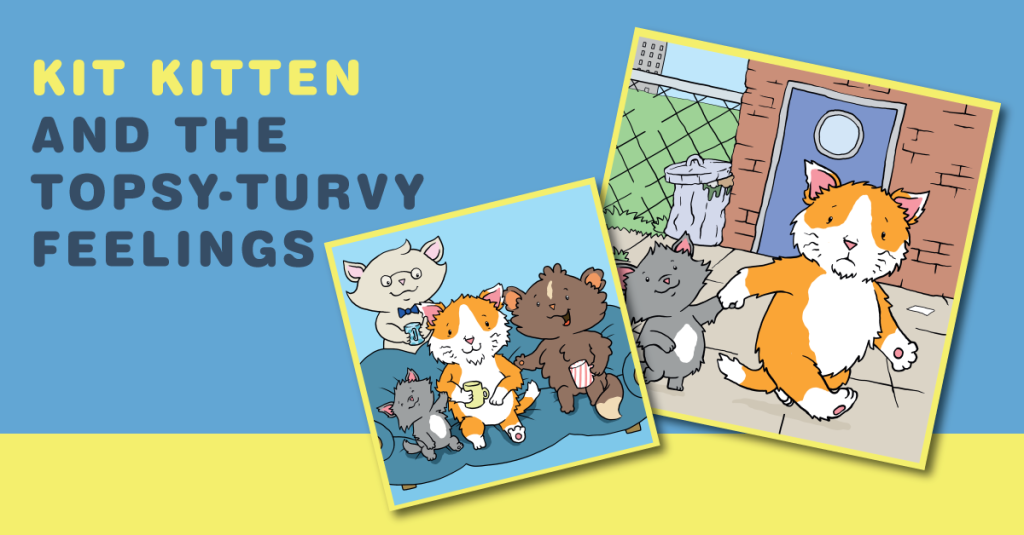Jane Evans, trauma parenting specialist and author of Kit Kitten and the Topsy-Turvy Feelings and How Are You Feeling Today Baby Bear?, writes about the importance of giving children the best chance to catch up on their emotional awareness and build their emotional vocabulary.
 There are many reasons why a parent or carer might not be able to be emotionally connected and available to a child. It might be that they did not have that kind of childhood so they aren’t aware of the benefits of talking with a child about their own and others’ feelings. Or, it could be that they are preoccupied with their own unmet emotional needs, living with domestic abuse, addiction, an eating disorder, high levels of stress and anxiety or other physical or mental illness, any of which could create a distance between them and the child they are raising.
There are many reasons why a parent or carer might not be able to be emotionally connected and available to a child. It might be that they did not have that kind of childhood so they aren’t aware of the benefits of talking with a child about their own and others’ feelings. Or, it could be that they are preoccupied with their own unmet emotional needs, living with domestic abuse, addiction, an eating disorder, high levels of stress and anxiety or other physical or mental illness, any of which could create a distance between them and the child they are raising.
What it doesn’t mean is that they don’t love their child as that’s a different matter altogether, it’s often more that they are not able to tune into and regulate their child’s emotional needs and state. This can have a lasting impact on all areas of a child’s development as they may struggle to express and cope with their daily emotions and this can then get in the way of their learning, being able to make friends, have fun and enjoy a carefree childhood.
The story of Kit Kitten shows how Kit becomes withdrawn, watchful and is often overwhelmed by not being able to put feelings into words and from not having a close adult to help unpack all of them in a safe and manageable way. This is something I have repeatedly seen in the parents, children and young people I have been working with for over two decades now. It causes such emotional distress and anxiety, and often leads to mental and physical illness from the stress of feeling emotionally invisible, stuck, overwhelmed and isolated.
Kit Kitten and the Topsy-Turvy Feelings aims to address this missing emotional connection early on to offer children the best chance to catch up on their emotional awareness and build their emotional vocabulary by encouraging adults to begin this vital work with them in a gentle way. Emotional intelligence is the key to good mental health, to being free to access learning and to building healthy long-term relationships for life.
‘If your emotional abilities aren’t in hand, if you don’t have self-awareness, if you are not able to manage your distressing emotions, if you can’t have empathy and have effective relationships, then no matter how smart you are, you are not going to get very far.’
– Daniel Goleman
You can find out more about Jane’s work, upcoming events and read more of her blog posts on her website: http://www.parentingposttrauma.co.uk/ You can also follow her on twitter: @janeparenting2
